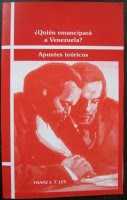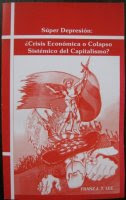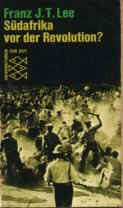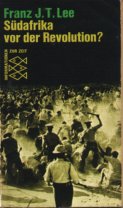UK professors to delve more into BBC reporting on Venezuela and Chavez...
By Patrick J. O'Donoghue
Sunday, February 28, 2010
![[]](http://www.vheadline.com/graf/patrick.jpg) VHeadline News Editor Patrick J. O'Donoghue reports: University of West England professor Lee Salter says the next stage of his research into BBC's news coverage of Venezuela will depend very much on funding. Unfortunately, British universities today are refusing to fund research, unless it has links with or sponsored by industry/corporations. The funding of independent research is fast becoming a thing of the past.
VHeadline News Editor Patrick J. O'Donoghue reports: University of West England professor Lee Salter says the next stage of his research into BBC's news coverage of Venezuela will depend very much on funding. Unfortunately, British universities today are refusing to fund research, unless it has links with or sponsored by industry/corporations. The funding of independent research is fast becoming a thing of the past.
The first release of Salter and team's findings on BBC reporting has been well received by academics in the United States of America -- he relates surprise on receiving emails from BBC Radio 4 and the World Service asking if their reporting on Venezuela was included in the critique as well. Salter points out that the study was based on more than 300 articles published by BBC News Online.
The very fact that the BBC had allowed an opinion piece in the first place struck Professor Salter as weird and un-BBC like and, secondly, the Hitler analogy and a dictatorship taking place within six months raised obvious suspicions.By Patrick J. O'Donoghue
Sunday, February 28, 2010
![[]](http://www.vheadline.com/graf/patrick.jpg) VHeadline News Editor Patrick J. O'Donoghue reports: University of West England professor Lee Salter says the next stage of his research into BBC's news coverage of Venezuela will depend very much on funding. Unfortunately, British universities today are refusing to fund research, unless it has links with or sponsored by industry/corporations. The funding of independent research is fast becoming a thing of the past.
VHeadline News Editor Patrick J. O'Donoghue reports: University of West England professor Lee Salter says the next stage of his research into BBC's news coverage of Venezuela will depend very much on funding. Unfortunately, British universities today are refusing to fund research, unless it has links with or sponsored by industry/corporations. The funding of independent research is fast becoming a thing of the past.The first release of Salter and team's findings on BBC reporting has been well received by academics in the United States of America -- he relates surprise on receiving emails from BBC Radio 4 and the World Service asking if their reporting on Venezuela was included in the critique as well. Salter points out that the study was based on more than 300 articles published by BBC News Online.
- What Lee Salter and his discourse analysis colleague, Dave Weltman want to tackle in detail ... if they can get the funding, is the BBC's coverage of elections, nationalizations, national reconciliation and a comparative study with how the BBC reports on Colombia.
In fact, the pompous and narrow-minded Olavarria's argument became the groundstone of US policy leading up to the April 2002 coup d'etat, namely that elections do not always constitute legitimacy. That put Salter and Weltman on the scent ... after all, Salter teaches journalism and public communications, as well as journalism and democracy.
Salter is strong on delving into the ideology behind western and especially British journalists' approach to Venezuela, which, he insists, is in tune with the BBC's ideology of liberal nationalism and its portrayal and re-construct of Britain as a national family, which combined with class blindness leads BBC journalists to consider Chavez as a virtual and real paratrooper that suddenly burst on to the political scene.
The puffed-up Olavarria -- who had a record of biting the hand of every movement or person he supported -- failed as an historian to point out the other side of Venezuela history that Fourth Republic governments and he himself had glossed over and erased from the history books.
British correspondents are usually from public schools and white, Salter claims, and trained in a Britain that is seemingly classless. When they report from foreign countries they tend to pigeon-hole their subject matters in the same lens of British national unity, while proclaiming fairness and balance as the essence of good journalism.
Their imported view is that Chavez is an exception ... an alien force to domestic democracy ... causing divisions in a nation that was united before he came along.
- This world view influences and is reinforced by the BBC's choice of sources, stringers, researchers and fixers inside Venezuela.
The city of Bristol (where he lives and teaches) was an important link in the slave trade from where goods were sent to Africa, exchanged for slaves to transport to the Americas, returning with spices and other commodities to sell in England.
Patrick J. O'Donoghue
news.editor@vheadline.com http://www.vheadline.com/readnews.asp?id=88913
![[]](http://www.vheadline.com/graf/salter_Lee_Bristol.jpg)













No comments:
Post a Comment